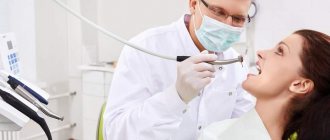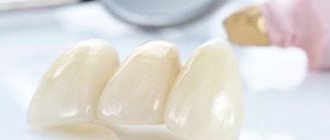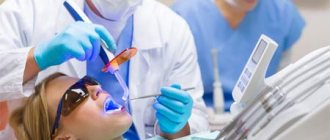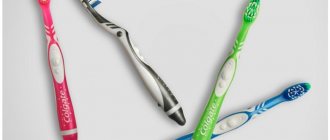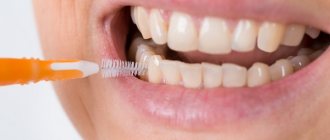History of the profession
The very first mentions of dental therapy are found in the history of Ancient Egypt. Tools similar to modern analogues have been found more than once in tombs. Many more Egyptian skulls with crowns on their teeth were also discovered there, and these were not only rich people. Judging therefore, it can be said that some types of dentistry were developed in Egypt. In addition, the first toothpaste was mentioned at the same time . It included:
- ashes of the burnt entrails of a bull;
- ground eggshell;
- myrrh;
- crushed pumice.
Then in the IV-V centuries. BC, the great Hippocrates became interested in this science. He recommended eliminating pain with a hot iron. At that time, many people suffered from toothache and did not understand how to deal with it. Fatalities from common flux were common, and during the time of Hippocrates, dentistry advanced several steps forward.
In your free time from work, you can earn extra money
on freelance exchanges (by writing comments, reviews, or simple actions on social networks) - choose what you like best and start earning money!
The first toothbrushes appeared in the Middle East in 500 AD. And in the 4th century AD. e. found forceps used to pull out bad teeth. And also powerful drugs that relieve pain appeared: arsenic and opium. Therefore, people began to understand that there is no need to rush to remove teeth, but that they can be treated. So, in 659 the first fillings appeared.
This specialization developed, and already in Russia, during the reign of Peter I, the profession of dentist officially arose, and rapidly became popular among men and women. In 1881, the first educational institution appeared in St. Petersburg, which trained future dentists. Then such institutions began to open throughout Russia.
February 9 is considered to be International Dentist Day, which falls on the day of St. Apollonia. After all, it was she who accepted martyrdom for Christ. She was tortured with forceps, which caused hellish pain.
Dental surgeon
He performs outpatient surgeries. Typically, a dental therapist refers patients to him if they need to have a tooth removed. The surgeon can also perform more complex tasks.
For example, a doctor performs frenuloplasty and operates on the root area of the teeth. If necessary, he can open abscesses and implant implants so that prosthetics can be installed in the future. The surgeon treats the trigeminal nerve as well as the jaw joints.
Types of specialization
This type of activity is multidisciplinary and covers a wide range of activities. Therefore, modern science has divided this branch of knowledge into a number of specialized specialties:
- Dentist-therapist . You can find out what this doctor does if a person has dental problems and pain. His responsibilities include a preliminary examination of the patient’s teeth and prescribing subsequent treatment. He also treats caries and inflammation in the oral cavity. After examination and diagnosis, the doctor refers you to specialized specialists.
- Prosthetist . If the therapist did not cope with the task, then people come to this doctor. He deals with prosthetics and offers different options to patients. Then he makes a description, impressions of the teeth and adjusts them to the particular structure of the patient’s mouth.
- Dental hygienist . Examines the oral cavity, removes plaque, polishes enamel and advises people on the prevention of dental diseases.
- Orthopedist . It is based on the removal of distortions in the bite and the installation of different types of orthopedic dentures - removable, fixed and combined, and also corrects the position of the teeth in the oral cavity.
- Surgeon . You cannot do without it, because there are cases when surgical intervention is necessary. The surgeon prepares the oral cavity for the upcoming procedure of inserting dentures. His competence includes jaw practice, treatment of wounds on the face and mouth, and jaw restoration.
- Maxillofacial surgeon . The specialty of these doctors was complex operations of various types using general anesthesia and correction of the jaw area.
- Pediatric dentist . In young children, baby teeth have certain characteristics, and working with them requires skills. In addition, the pediatrician must get along with children so that they are not afraid before the procedure.
- Orthodontist . Unlike an orthopedist, he deals primarily with exceptional cases, anomalies, and deviations in the development of the jaw.
- Periodontist . Specializes in the gums and soft tissues that support and surround teeth. Consults patients about bleeding gums, the appearance of tartar and plaque on teeth.
All these names, or rather, specialties, can be mastered at the Faculty of Dentistry of a medical university. The first 2-3 years are spent on general training, and then there will be training in a specific profession. It is for this that you need to pass the exam for the category.
What types of dentists are there?
09 June 2022, 00:00 |
Katya Baranova 3 chosen
There is probably no worse person for many of our compatriots than a dentist. Many still remember treatment without pain relief, rudeness and terrible screams outside the office door. Now, of course, everything has changed, and anesthesia, along with polite service, is a must-have of modern medicine. However, we are still confused about who we are going to: the dentist? To the dentist? To the dentist? Let's figure it out.
Dentist
To qualify as a dentist, you need to graduate from a medical college in the relevant specialty. Yes, a dentist has a secondary specialized education. He has the right to examine the patient, make a diagnosis, and perform a number of simple manipulations. He can treat simple gum diseases, perform professional hygienic teeth cleaning, and place a filling if caries has just begun to develop and has not penetrated deeply. If he discovers pulpitis that requires nerve removal and root planing, he must refer the patient to a dentist certified in endodontics.
Dentist
This doctor has a higher education, has undergone relevant practice and has the right to treat more serious diseases. This is the general name for doctors who specialize in oral diseases. Among them there is a therapist, endodontist, orthopedist, orthodontist, surgeon, and implantologist.
A dental therapist is a doctor whom we, in fact, call a dentist. We go to him first, he makes a diagnosis and refers us to other specialists if the situation requires it.
Subspecialists
An endodontist is a doctor who treats the root canals of teeth. The therapist may be an endodontist and most often in the modern situation the general dentist has this and other additional skills.
An orthopedic dentist is a doctor who specializes in dental prosthetics. He places crowns, veneers, and makes complete removable dentures.
Where are we without orthopedic dentists?
In the Ancient world, they inserted turned ivory, wood, stones, and even shells. Of course, the teeth of the poorer sections of the population were also used (they sold their teeth to the rich), and the dead, and animals.
After the Battle of Waterloo, which took place on June 18, 1815, looters from the battlefield dragged, among other things, the healthy teeth of fallen soldiers. They were inserted into dentures and sold for a high price, and dentures with human teeth have since received the nickname “Waterloo teeth,” even when only memories remained of the battle, and, accordingly, of those very teeth.
Today, artificial teeth are made from special plastic, metal, ceramic (or porcelain), but certainly not from human teeth, ivory or shells. The most modern type of dental prosthetics is implantation.
An orthodontist straightens teeth and corrects bite.
The surgeon not only removes teeth, but also performs operations on the gums and solves other problems of the dentofacial apparatus. He can also be an implantologist, that is, a doctor who installs artificial titanium roots to replace the lost ones. And the crowns will be placed on them, again, by an orthopedist.
Most often, dentists combine a number of specialties. As we have already said, a therapist can be an endodontist, an orthopedist, and an implant surgeon. Orthodontists also know how to treat teeth.
Dentistry is a whole medical world with its own specialists. And so that your teeth do not hurt and the services of this entire army of doctors are required as rarely as possible (or not required at all), go to preventive appointments, have professional hygienic teeth cleaning and do not forget about daily care with a brush, paste and floss.
Are there any dentists among you? What is your specialty? Tell about your studies and work to those who are just choosing their path in life.
By the way…
The condition of teeth and lips is directly related to each other. Often, changing your bite can slightly increase the volume of your lips and vice versa. In turn, the color of lipstick affects the color of your teeth. If there is a yellowish tint in the lipstick, your teeth will look yellower. And if you want to “dim down” the yellowness of your teeth, choose berry shades of lipsticks.
| Le Rouge Genuine Leather Couture Edition Lipstick, Givenchy | Rouge Cream Lipstick, Sephora | Addict Lipstick Summer 2022 Lipstick, Dior | ||
Katya Baranova , iledebeaute.ru
Photo: Photobank Lori
Job Responsibilities
Even at the institute, immediately after admission, the student is prepared for future work and clearly delineates what will become his vocation.
Job responsibilities of a dentist include:
- carrying out diagnostics and providing all types of dental services to the patient;
- treatment of teeth, oral cavity and maxillofacial area;
- preparation of dental and orthopedic instruments and their correct use for their intended purpose, adhering to safety precautions;
- collection of biomaterial for analysis;
- carrying out prevention, diagnosis and treatment of all types of caries;
- correct removal, prosthetics and installation of fillings;
- registration of medical documentation established by law;
- compliance with job instructions.
These are mandatory items that require strict implementation.
Orthopedic dentist
The doctor performs dental prosthetics and restores the integrity of the dentition. You will need to visit him if a person decides to install prostheses or similar products. Typically, an orthopedist is visited if a tooth is lost or if it will soon have to be removed.
It is advisable to contact your dentist on time. The sooner you go to an orthopedist after tooth extraction, the better and easier he can do the work. The specialist installs dentures or selects other methods to improve chewing function.
Requirements for a dentist
In addition to the clearly limited responsibilities that define the work of a doctor, there are also qualification indicators that are used to guide the employment of specialists.
People who:
- have a diploma with higher medical education, a certificate of a certain specialization;
- passed a medical examination and received a medical certificate;
- have experience in this field;
- have computer skills;
- presence of responsibility, sociability, attentiveness and accuracy.
Personal qualities and skills are no less important for this profession. These include:
- the presence of excellent coordination of movements, hand motor skills, excellent vision;
- knowledge of human anatomy and physiology;
- understanding the effects of medications used in dentistry;
- ability to use specialized instruments, as well as an X-ray machine and interpret images.
It is inherent in a dentist to be a bit of a psychologist, to be able to communicate with nervous patients, to correctly explain the situation in order to relieve nervousness and calm the patient.
Dentist-therapist
The main field of activity of this specialist is the prevention and treatment of caries, eliminating its complications. It is the therapist that a person turns to on his first visit to the clinic. The specialist will conduct an examination and decide which treatment method can be used in a particular situation.
A dental therapist can install fillings in cavities affected by caries. He can also treat gums and inflammatory processes affecting the oral cavity. The therapist can diagnose a specific pathology and, if necessary, refer the patient to another specialist.
Principles of training
If you decide to become a dentist, then you need to understand that this profession is very responsible. Therefore, it is necessary to obtain a medical education.
Those who are interested in dentistry are wondering: how long to study to become a dentist and what is needed for this. To enter a university, you must:
- complete 11 grades in a secondary school;
- pass the appropriate exams in biology, chemistry and Russian.
It is necessary to understand whether a person is ready for this profession. To obtain a specialty in this field, you need good study and a specific goal, as well as the ability to find an approach to even the most picky and harmful patients.
Dentist-orthodontist
People turn to him if they have problems with their bite or if their teeth have grown unevenly. The specialist eliminates bite defects and also aligns incisors, canines and molars.
If necessary, the orthodontist will make an impression of the jaw to use for making braces or aligners. The doctor will install one of these structures and explain how to care for it. While wearing braces, a person will need to consult with an orthodontist.
Salary and place of work
As mentioned earlier, the profession is in demand and profitable. Therefore, dentists have a wide choice of places to work:
- public and private clinics;
- dental offices;
- sanatoriums and children's institutions.
Factors that affect wages are length of service, qualifications and region.
Salaries in the specialty range from 30,000 to 100,000 rubles, and in large cities you can earn much more. As practice shows, in private clinics the income is much different compared to public clinics. On average, it is 45,000 rubles.
How much do dentists of different specialties earn?
Pay levels for dentists in different specialties can vary significantly, even within the public or private sector alone.
How much does a dental therapist earn?
The average salary of a representative of this specialty is 50 thousand rubles per month. At the same time, the demand for dental therapists remains consistently high in both the public and private sectors, but the most vacancies are open in Moscow. St. Petersburg, Krasnodar, Saratov, Krasnoyarsk, and Volgograd are not far behind in this indicator.
It is interesting that the work of dental therapists is best paid not in Moscow. The leader, according to official statistics, is the Ulyanovsk region and the Republic of Karelia, where a dentist-therapist receives up to 100 thousand rubles per month (on average).
Dental therapists working in the northern regions traditionally have a high level of income. For example, in the Khanty-Mansiysk Okrug, the average salary for representatives of this specialty is almost 77 thousand rubles per month. In Moscow and St. Petersburg, the average salary of dental therapists is 60-63 thousand rubles per month. But this figure also takes into account the income of specialists in private clinics, so in practice the wage gap can be quite large.
Salary examples
How much does an orthopedic dentist earn?
The average salary of representatives of this specialty is almost 89 thousand rubles per month. At the same time, the distribution of vacancies here will be approximately the same as for dental therapists, that is, the greatest demand for specialists is recorded in the capital.
At the same time, the highest level of income, according to official statistics, is among those representatives of this profession who live in the Tyumen region - about 178 thousand rubles per month.
Examples of positions
The average salary in Moscow is 110 thousand rubles. Interestingly, in Krasnodar it is higher – 138 thousand rubles. In St. Petersburg, Omsk, Yekaterinburg, the salary level is 100 thousand rubles, but it is clear that in many small cities the income of such specialists will be significantly lower.
How much does an orthodontist earn?
The average monthly income for a representative of this specialty is 72 thousand rubles. Orthodontists are most in demand in Moscow and St. Petersburg, as well as in several cities with a population of over a million. Apparently, because in small towns issues of aesthetics are treated much more simply.
But according to official statistics, the highest salary level is for orthodontists working in the Republic of Bashkortostan. Here they receive about 100 thousand rubles a month, while in Moscow the average salary is only about 70 thousand rubles. In most cities, the average monthly income of such specialists is 50-60 thousand rubles.
Other professions: How much does a pharmacist earn?
Salary with examples
How much does a periodontist earn?
The average salary of a periodontist is 60 thousand rubles per month. The largest number of vacancies for representatives of this profession are open in Moscow and the capital region. Actually, in Moscow such a specialist receives 70 thousand rubles (and in private clinics even more). In St. Petersburg, the average salary is 50 thousand rubles. In Irkutsk, Chelyabinsk, Tomsk, such a specialist earns on average 40 thousand rubles per month.
How much does a dental surgeon earn?
The monthly salary of such a specialist is 60 thousand rubles. It is interesting that many vacancies in this specialty are open not only in Moscow, but also in Krasnoyarsk, St. Petersburg, and Nizhny Novgorod. The average income of such a specialist in Moscow is 74 thousand rubles, but in the North, dental surgeons receive more - for example, in Khabarovsk, according to official statistics, the salary level is about 100 thousand rubles, in the Yamalo-Nenets Autonomous Okrug - 80 thousand rubles. In most other regions, the average income of a dental surgeon does not exceed 50 thousand rubles.
Examples of vacancies
How much does an oral and maxillofacial surgeon earn?
The average salary of such a specialist does not exceed 40 thousand rubles in the country. At the same time, in the capital, representatives of this specialty, according to official data, earn about 45-50 thousand rubles, and this takes into account private clinics, where they are often registered part-time. In Novosibirsk the average salary is 35 thousand rubles, in Chelyabinsk – 25-30 thousand rubles.
How much does a pediatric dentist earn?
The monthly income of a specialist in this area is 50 thousand rubles. The most vacancies in this specialty are open in Moscow and St. Petersburg. However, the highest salaries are offered to pediatric dentists in the northern regions. For example, in the Nenets Autonomous Okrug they receive more than 112 thousand rubles per month, in Khabarovsk - 107-108 thousand rubles per month. In Moscow, the income level is 70 thousand rubles per month, but, for example, in Kursk, Penza, Yaroslavl, it is already 60 thousand.
Examples of vacancies
Which dentists are in demand in Moscow?
Resume sample
To find a job faster, you need a resume that can be sent to several companies at once. You need to know how to compose it correctly.
The resume must include:
- Full Name;
- Date of Birth;
- contact details: phone, email;
- citizenship;
- experience;
- basic and additional education;
- professional skills;
- knowledge of languages;
- personal qualities.
The resume should be simple and understandable; there is no need to write or invent a lot, because then in practice all the qualities and abilities of the specialist will be assessed.
Dentist-periodontist
A periodontist deals with the treatment of non-inflammatory and inflammatory periodontal diseases (periodontal tissues). The specialist’s goals are to stop the process using conservative methods, prevent the loss of segments, and maintain the integrity of the row. The dentist of the periodontal department treats the following diseases:
- gingivitis;
- periodontitis;
- periodontal disease;
- flux;
- gum recession;
- tissue inflammation during the eruption of wisdom teeth (pericoronitis);
- benign tumor diseases of periodontium, etc.
A periodontist is a highly qualified doctor. In addition to treatment, he provides advisory support to patients and fellow dentists, and develops treatment tactics.
The difference between a dentist and a dentist
A dentist is a dentist who is a paramedic. This concept is more commonly used abroad; in some countries it simply has not taken root.
This profession differs in the type of education. You can study at a medical school, college and get a secondary education to become a dentist, but dentists only need a higher education. Accordingly, their specialization will be different.
Responsibilities of a dentist:
- examination of the patient, making a primary diagnosis;
- gum treatment;
- installation of seals;
- oral hygiene instructions;
- provision of pre-medical care and referral to specialists;
- assistance in choosing toothpaste and brush.
A dentist is trained to work with simpler cases than a dentist, so his income will be different.
How much does a dentist earn in Western countries?
USA
In the US, most dentists have their own private practice, for which they need to obtain a license. The salary level is up to $80 per hour and up to 140 thousand dollars per year - this is a whole industry here.
Germany
In Germany, a dentist can earn up to 6,000 euros per month, and this is before taxes. However, this mainly applies only to experienced specialists, and beginners receive up to 3,500 euros. In East Germany, income levels are much lower; here, even an experienced doctor can only earn 4,500 euros. In England, a dental therapist earns at least 7.5 pounds per hour. The annual income of such a specialist is 97-98 thousand pounds.
Canada
Advantages and disadvantages
As in any profession, it is not the subject that matters, how much dentists earn, but the positive and negative nuances.
The positive aspects of working as a dentist include:
- qualifications are in demand in all countries of the world;
- high profit payment;
- normal working hours;
- Private practice is possible when you have a lot of experience.
There are also negative indicators that should not be forgotten. The negative aspects include:
- greater responsibility for the patient;
- high cost of training;
- possible stressful situations at work;
- competition;
- expensive equipment and tools;
- the need to constantly improve skills;
- working with different people.
Dentistry is a kind of art that has always been considered a prestigious profession. Therefore, every year students enter universities for this specialty in order to learn and then work and receive high wages.
What do you need to know about working in a private clinic and your own office?
Despite the fact that such work brings more income, it is associated with certain nuances that you need to be aware of when choosing a certain type of activity. For example, in a private clinic, doctors must first familiarize themselves with corporate standards; some even introduce a dress code. And when opening your own office, you need to spend a lot of money and time to bring everything into compliance with the standards prescribed in laws and regulations.
Dentist advertising and job search
For a dentist, reputation is very important when looking for a job. Therefore, he can gain experience in a state clinic, so that he will soon be able to receive good recommendations. In addition, there are special professional groups on social networks where dentists can post photographs of their most successful work. This can be considered a kind of self-promotion, so that in the future you can refer to this portfolio during an interview. Of course, photographs need to be protected with watermarks, since such works can simply be stolen.
Working with social media networks
Owners of private accounts can actively promote their services on social networks, but in groups aimed at consumers. For example, you can use Instagram as a tool by tagging relevant hashtags. This technique is considered especially effective for orthodontists who primarily offer aesthetic medicine services.
Work schedule in a private clinic or your own office
Many people believe that private clinics have more flexible hours than public clinics. Actually this is not true. Very often it is scheduled several days in advance and without any “windows”. In addition, many clinics are open six to seven days a week to accommodate those patients who cannot make an appointment on weekdays. But private clinics are good because they have more time to see patients, the doctor can plan a lot himself, and as a result he works at a more comfortable pace.
Where to get training
In addition to higher education, there are a number of short-term training on the market, usually lasting from a week to a year.
The Interregional Academy of Additional Professional Education (MADPO) teaches in the specialization “Dentistry” and issues diplomas and certificates.
The Medical University of Innovation and Development invites you to take distance courses for retraining or advanced training in the field of “Therapeutic Dentistry” to obtain a diploma or state certificate. Training lasts from 16 to 2700 hours, depending on the program and your level of training.
The Institute of Professional Education "IPO" invites you to take distance courses in the field of "Dentistry" (there are options of 256, 512 and 1024 academic hours) to receive a diploma or state-issued certificate. We have trained more than 8,000 graduates from almost 200 cities. You can undergo external training and receive interest-free installments.
Features of oral diseases
The top of the ranking of diseases that are leading among people who come to the dental office is headed by caries at various stages of its course. From a physiological point of view, the process is explained by the mineralization of enamel. Over time, this guarantees the development of an inflammatory process such as pulpitis. It is localized in the area of neurovascular bundles, which are designed to provide nutrition to the tooth.
Other diseases include:
- periodontitis;
- periodontitis;
- ginvinitis;
- benign neoplasms;
- stomatitis;
- tongue abscesses;
- non-epidemic mumps.
Periodontitis, which is almost as common as caries, involves an inflammatory process that selects the location of the tooth socket. This is the name given to the place where the gum and growing tooth come into contact.
If the patient is plagued by inflammation of the mucous membranes of the gums, accompanied by a pronounced bad breath, then this indicates ginvinitis. If you delay its treatment at the first stage, it will very quickly lead to periodontitis and gum abscess.
You should not be afraid of diagnoses associated with the detection of cancerous formations on the gums. Usually we are talking about granulomas. Since these tumors are benign, they can be removed without problems.
Another disease that usually does not pose a serious danger, as it often goes away on its own, is stomatitis. The only difficulty here is that during the period of exacerbation the patient suffers greatly due to unpleasant sensations. To treat damage to the oral mucosa, the doctor will recommend special pharmacy rinses. If you follow the instructions, you can get rid of inflammation in two to three days.
According to research, stomatitis in childhood is one of the hidden causes of loss of appetite in babies. They are simply uncomfortable eating, so they are capricious and prefer not to further injure their mucous membranes.
A little less common are traumatic injuries to the jaw, which simply cannot be corrected without the intervention of a maxillofacial surgeon. Another group of rare ailments are tongue abscesses and periostitis.
Sometimes it happens that a victim receives a referral to a dentist after visiting an ENT specialist. This applies to cases with extensive inflammation, when the throat, gums and parotid gland swell. Because of this, it seems as if it is precisely this that is the cause of the pain, and not a dental ailment.
Responsibilities of an orthodontist
Another narrow area of modern dentistry is orthodontics. Sometimes such an expert is called an orthopedist, but it would be more correct to call an orthodontist. He has to cope with aesthetic tasks.
With the help of accumulated knowledge and skills, the doctor easily corrects both natural anomalies and those pathologies that arose much later. The first group includes incorrect position of the teeth, which provokes an incorrect bite.
He is also able to correct the entire dentition, no matter what natural characteristics the applicant has from birth. The only question is how much such an intervention will cost.
The orthodontist's main secret weapon is special braces. Today, their variety is so wide that some models seem almost invisible against the backdrop of older, massive offerings.
Despite the stereotype that braces or other aids for correcting malocclusion and crooked teeth are the privilege of children, this has not been the case for a long time. Modern methods help correct errors of nature at almost any age. The difference lies only in the percentage effectiveness of the technique, which usually works somewhat worse for adults than for schoolchildren.
How is a dentist different from a dentist?
The difference is in the level of education and credentials. According to the job description, a dentist cannot perform certain types of treatment.
In practice, patients often encounter specialists without higher education, “jacks of all trades.” This situation is common in small settlements, where a medical institution has only one staff member for the treatment of oral diseases.
Take note:
- many specialists with secondary medical education claim that they perform dental treatment no worse than dentists, supporting their arguments with reviews from satisfied patients;
- but without the necessary level of knowledge it is impossible to correctly deal with a complex case and prevent side effects;
- without constant professional development, the introduction of new technologies, and modern materials, it is impossible to offer the patient the most gentle method of treatment;
- It is no coincidence that private dental clinics regularly spend considerable sums on advanced training courses and symposiums for practicing doctors.
Pediatric dentist
A pediatrician works with patients up to 17 years of age. He must understand the specific features of the structure and functioning of the jaw in childhood. Tasks of pediatric dentists:
- preventive examination;
- teaching the child hygiene skills;
- treatment of dental diseases;
- formation of the correct bite.
The specialist must have special communication skills that allow him to work with young patients. In addition, a dentist working with children must have the knowledge and technology to painlessly treat baby teeth.
Regardless of the specialty, a dentist performing services in a dental clinic has an impeccable knowledge of the theoretical aspects of the main branches of medicine: anatomy, physiology, pathophysiology, pharmacology. The introduction of innovative technologies into the industry obliges dentists to promptly improve their qualification level, master special equipment, dental instruments, manual skills, and be able to work with software.

